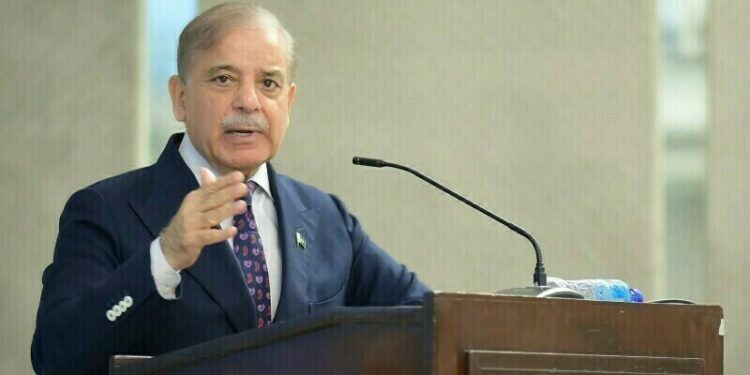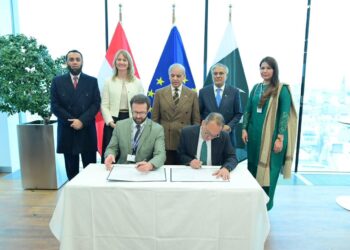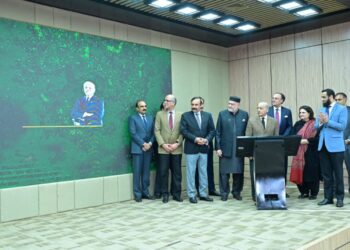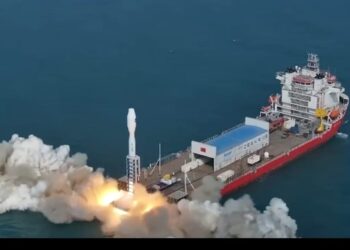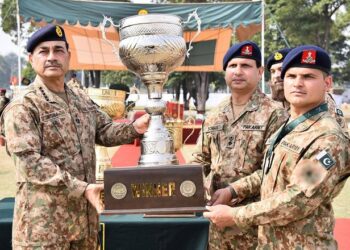Introduction
Prime Minister Shahbaz Sharif has strongly responded to the baseless allegations made by India following the Pahalgam incident, reiterating Pakistan’s commitment to regional peace and security. Speaking at the prestigious passing-out ceremony of cadets at the Pakistan Military Academy in Kakul, the Prime Minister emphasized Pakistan’s readiness for an impartial international investigation into the Pahalgam incident. He also delivered a stern warning against any violations of the Indus Waters Treaty, asserting that Pakistan would respond with full force if its water rights were infringed upon.
Pakistan’s Stance on the Pahalgam Incident
During his address, Shahbaz Sharif reiterated that Pakistan has always acted as a responsible member of the international community. He categorically denied India’s accusations related to the Pahalgam incident, calling them baseless and unsubstantiated. Sharif emphasized that Pakistan is fully prepared to cooperate in an impartial international investigation to uncover the truth behind the incident.
“Pakistan, being a responsible state, is ready for an impartial international investigation,” the Prime Minister stated. “However, we will not accept threats and baseless accusations that aim to tarnish our global reputation.”
Firm Warning on Indus Waters Treaty Violations
Prime Minister Shahbaz Sharif delivered a clear message to India, asserting that any attempt to stop Pakistan’s water in violation of the Indus Waters Treaty would be met with full force.
“Water is our lifeline, and no compromise will be made on it,” he declared. “Let there be no misunderstanding—Pakistan’s armed forces are fully prepared to deal with any situation.”
The Indus Waters Treaty, signed in 1960 with the mediation of the World Bank, allocates the use of the Indus River and its tributaries between India and Pakistan. The Prime Minister’s strong words highlight the importance of this treaty to Pakistan’s agriculture and economy, which heavily depend on a steady water supply.
National Unity and the Fight Against Terrorism
The Prime Minister highlighted Pakistan’s extensive sacrifices in the global war on terror. He pointed out that over 90,000 Pakistani citizens have lost their lives in terrorism-related incidents, and the country’s economy has suffered losses worth billions of dollars.
“Pakistan is the biggest victim of terrorism in the world,” he said. “Our desire for peace should not be mistaken for weakness.”
He reassured the audience that the entire nation of 250 million stands united with the armed forces and will continue to reject and fight terrorism in all its forms.
High-Level Participation at the Ceremony
The passing-out ceremony at the Pakistan Military Academy was attended by federal ministers, foreign diplomats, senior military officers, and other high-ranking officials. This high-level attendance highlighted the significance of the event and reinforced the government’s message of strength and resolve.
Pakistan’s Role in Global Peace and Security
As a non-permanent member of the United Nations Security Council, Pakistan remains committed to promoting peace and security around the globe. Prime Minister Sharif assured the international community that Pakistan would continue to uphold the UN Charter and play an active role in fostering global harmony.
“Pakistan is committed to playing its part for global peace and will continue to fulfill its responsibilities as per the UN Charter,” he added.
Concerns Regarding Afghanistan
The Prime Minister addressed the ongoing security concerns arising from Pakistan’s western border. He expressed a desire for peaceful relations with Afghanistan, referring to it as a “neighbor and brotherly Islamic country.” However, he also voiced serious concerns about terrorist activities emanating from Afghan soil.
“Unfortunately, terrorist acts are being carried out in Pakistan from Afghan territory,” Sharif said. He added that Deputy Prime Minister Ishaq Dar had recently visited Kabul to convey Pakistan’s desire for peaceful relations, while also making it clear that such cross-border attacks are unacceptable.
The Kashmir Issue: A Global Dispute Awaiting Resolution
Prime Minister Sharif invoked the vision of Quaid-e-Azam Muhammad Ali Jinnah, stating that “Kashmir is the jugular vein of Pakistan.” He highlighted the long-standing and unresolved nature of the Kashmir dispute and the sacrifices made by the Kashmiri people in their struggle for freedom.
“Millions of Kashmiris have given their lives to breathe in the air of freedom,” he said. “It is unfortunate that the international community has failed to resolve this issue.”
Condemnation of Israeli Aggression in Gaza
In a strong show of solidarity with the Palestinian people, Shahbaz Sharif condemned the ongoing Israeli aggression in Gaza. He called on the international community to take immediate action to stop the atrocities being committed.
“We stand with the Palestinian people and support their legitimate demand for an independent homeland,” he said.
Recognition of the Armed Forces’ Excellence
Addressing the cadets directly, the Prime Minister commended them for joining one of the world’s most disciplined and professional armed forces. He urged them to follow the guiding principles of Quaid-e-Azam and to serve the country with dedication and honor.
“Today, you are becoming part of a force that stands among the best in the world,” he told the young cadets.
Economic Progress and Foreign Investment
Prime Minister Sharif also touched upon the country’s economic recovery, noting that despite numerous challenges, Pakistan is on the path to progress. He pointed to increased foreign investment in sectors like mining, minerals, and defense production as signs of growing international confidence in Pakistan’s economy.
“We are receiving foreign investment in mining, minerals, defense production, and other key sectors,” he said, emphasizing the importance of economic growth in national stability.
Conclusion
Prime Minister Shahbaz Sharif’s speech at the Pakistan Military Academy Kakul was a powerful reaffirmation of Pakistan’s commitment to national security, international peace, and regional cooperation. From responding to unfounded accusations by India to reiterating the importance of the Indus Waters Treaty, and from emphasizing unity in the fight against terrorism to expressing support for oppressed communities globally, the address covered a broad range of crucial issues. As Pakistan continues to navigate complex regional and international dynamics, the Prime Minister’s message was clear—Pakistan remains steadfast, resilient, and committed to justice and peace.
















